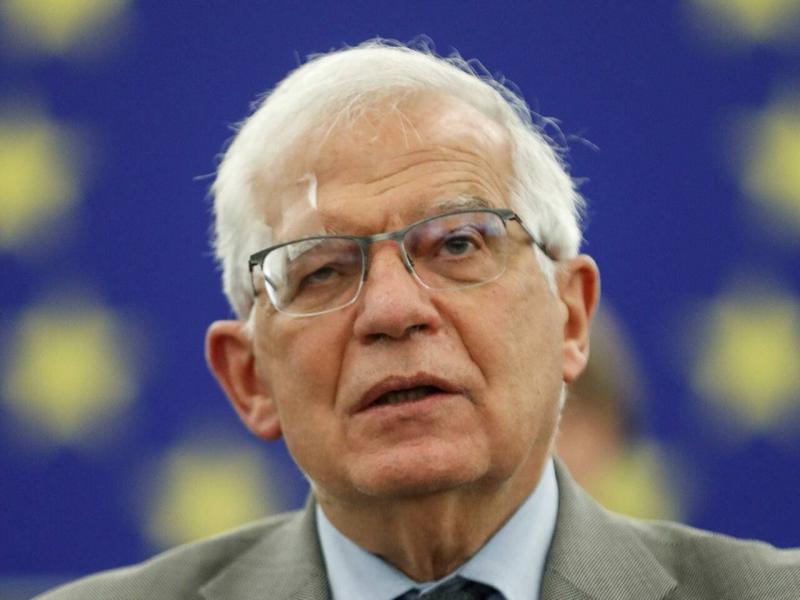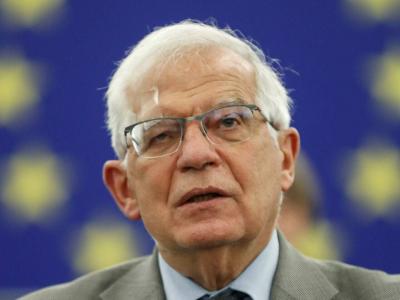The EU's foreign policy chief stated that the bloc "regrets" not being informed or consulted regarding the security deal made between the United States, Australia, and the United Kingdom for the Indo-Pacific region, noting that it will work to "analyze its implications." Josep Borrell, during a presentation of the EU's strategy for cooperation in the Indo-Pacific, said, "An agreement of this kind wasn’t prepared overnight. It takes time. But we were not informed, nor consulted. We condemn that." However, he added that this would not lead to "reconsidering the relationship with the United States."
Borrell's spokesperson, Peter Stano, mentioned that "an analysis of the situation and the implications of this alliance will be conducted," pointing out that "the upcoming meeting of EU foreign ministers, scheduled for October 18 in Luxembourg, will provide an opportunity to discuss this alliance."
Relations between France and the United States entered a state of open crisis on Thursday after Australia canceled a French submarine deal in favor of acquiring nuclear-powered American submarines, prompting Paris to describe the decision as a "stab in the back" and reminiscent of former President Donald Trump’s approach.
On Wednesday evening, President Joe Biden announced a strategic partnership with the UK and Australia that includes providing Canberra with American nuclear-powered submarines, effectively sidelining the French. Borrell stated, "I understand the disappointment of the French," adding, "This agreement forces us once again to think about the need to... develop the strategic independence of the EU." However, he emphasized that "it would be unfortunate to downplay the importance of the EU's cooperation strategy with the Indo-Pacific region."
Meanwhile, Charles Michel, President of the European Council, considered the new security partnership between the US, UK, and Australia as further proof of the need for a joint EU approach in this strategically significant area. He said that "a strong EU strategy for the Indo-Pacific is more necessary now than ever." Borrell continued, "This is about a cooperation strategy with democratic partners that share our values, not a strategy of confrontation," stressing that "the EU wants to establish ties with countries in the region and not create dependencies."
He reminded that "this region is the future. The EU is the largest investor at 12 trillion euros." He added, "40% of trade with the EU passes through the South China Sea, and the EU has an interest in maintaining freedom of navigation in this area."
The Europeans have identified several priorities: achieving a reduction in greenhouse gas emissions from energy-intensive countries in the region, setting standards for the digital revolution with these nations, and de-escalating and avoiding tensions. Borrell noted, "It won't be easy, but we must engage," pointing out that "not all member states share the same commitment in the region. It depends on interests and economic resources."
He emphasized that the EU would need to collaborate with the UK. "There is not much enthusiasm from the British leaders, but if they wish, we are ready." Earlier, a spokesperson for the European bloc stated that the EU had not been informed beforehand of the new military partnership between the US, UK, and Australia, raising concerns in Europe about an exclusionary approach from Washington.
On Wednesday, leaders from the three countries announced their new alliance in a step aimed at countering China's expanding influence. The agreement to provide Australia with nuclear-powered submarines particularly displeased France, especially due to Canberra canceling a previously agreed-upon deal to purchase submarines from Paris.
On Wednesday, President Biden and Prime Ministers Boris Johnson and Scott Morrison announced the new alliance, a development that occurred just before discussions within the EU about its strategy for the Indo-Pacific region. The bloc aims to solidify its relationships in the area, which it considers "of great strategic importance for EU interests." In April, Brussels indicated that the strategy could include enhancing the European maritime presence in the Indo-Pacific region. Many in Europe expressed dissatisfaction with the way the US withdrew from Afghanistan, accusing Biden of sidelining his allies in that decision.




